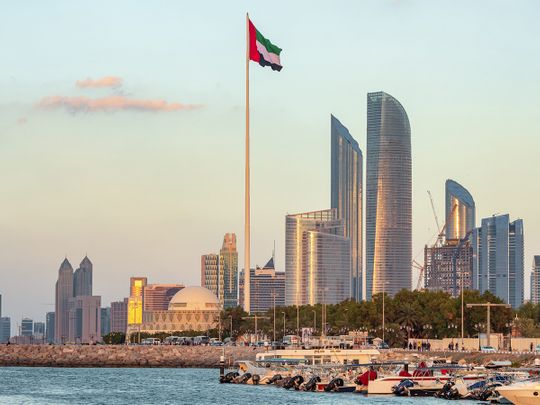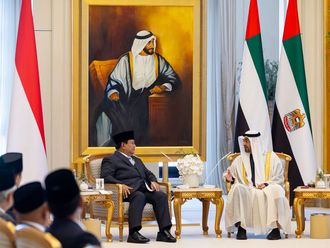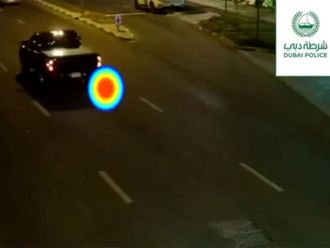
Abu Dhabi: Behind Abu Dhabi’s ranking as one of the safest cities in the world is the largely silent role played by an integrated system that analyses vast amount of data and is powered by artificial intelligence (AI).
Through the integrated use of sensors, closed-circuit television network, automatic licence plate readers and facial recognition software, all of which feed data into a central control room, the Safe City project helps authorities predict incidents and take preemptive action against crime or violence, said Dr Major Ahmed Al Shamsi, head of Safe City Project at Abu Dhabi Police.
“The project was launched three years ago and currently covers 85 per cent of the emirate’s infrastructure. It has helped reduce traffic incidents and fatalities, patrol areas more efficiently and take action to prevent untoward occurrences,” he told Gulf News on the sidelines of the Abu Dhabi Smart City Summit.
Smart city
The two-day summit is seeing the attendance of 400 experts, with the focus on the technological advances and innovations that are improving the quality of life in the UAE capital. Organised by Abu Dhabi emirate’s municipalities sector regulator, the Department of Municipalities and Transport (DMT), the Summit has already seen the launch of driverless taxis on Yas Island, as well as the signing of other agreements with technology developers like Huawei, Bayanat and G42.
Abu Dhabi was ranked the safest city in the Middle East and Africa by the Economist Intelligence Unit’s Safest Cities Index 2021 and scored ‘very high’ on health security and infrastructure security. In January, Abu Dhabi was ranked the world’s safest city for the fifth year in a row, with Sharjah and Dubai among the top 10, in a survey conducted by data crowd-sourcing website Numbeo.
Vast collection of data
According to Major General Maktoum Al Sharifi, director general at Abu Dhabi Police, the Safe City system comprises about 14 technical elements, including security and traffic components.
Dr Al Shamsi added that thousands of cameras and sensors enable the system, with billions of data points feeding into it every day. In fact, the activity of more than 250,000 registered cars is closely monitored.
“This system helps us make the roads safer, reduce crime and enhance response time to emergencies and incidents. For instance, police patrols are not randomly deployed anymore. Their deployment is based on historic data of criminal activity, reckless driving instances and peak congestion. Even the number of patrol cars deployed and their timings are based on information supplied through AI-powered analysis,” Dr Al Shamsi said.
Making roads safer
Other than police patrols, the system is used to recommend speed limits for roads based on weather conditions, which are then conveyed to drivers through signs on the road and through text messages. In addition, the police can ‘keep an eye’ on people who have previously been known to drive recklessly. At the same time, it ensures that drivers insure their vehicles and renew their registrations on time.
Heavy vehicle activity is also monitored and access to secured locations is safeguarded.
Read more
- Dubai's DIFC Courts becomes first court in Middle East to go '100% paperless'
- Abu Dhabi begins licensing NGOs to boost social efforts
- 20 Dubai policewomen pass counter-ambush-and-raids training
- UAE: Ajman Police Special Task Force members honoured for rescuing man who was about to drown off the beach
In effect, the system helps Abu Dhabi Police make optimum utilisation of its human resources. “The nature of traffic incidents and crimes changes with time and we continue to update our systems to keep pace with them so that our city can continue to be among the safest in the world,” Dr Al Shamsi said.








